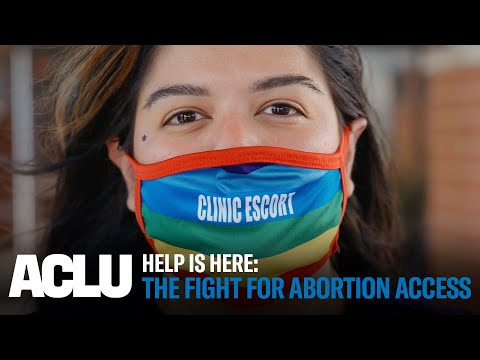The movement for abortion rights can feel hopeless in the wake of the Supreme Court’s decision to overturn Roe, and indeed, this is a moment of unprecedented adversity. But across the country, advocates are hard at work trying to win back fundamental reproductive freedoms and helping patients navigate the new landscape of abortion access.
We spoke with advocates on the ground in Missouri, where abortion is now banned, and in Illinois, where two abortion clinics near its border are working to accommodate the influx of patients from out of state.
Kawanna Shannon
Director of Patient Access, Planned Parenthood of the St. Louis Region and Southwest Missouri
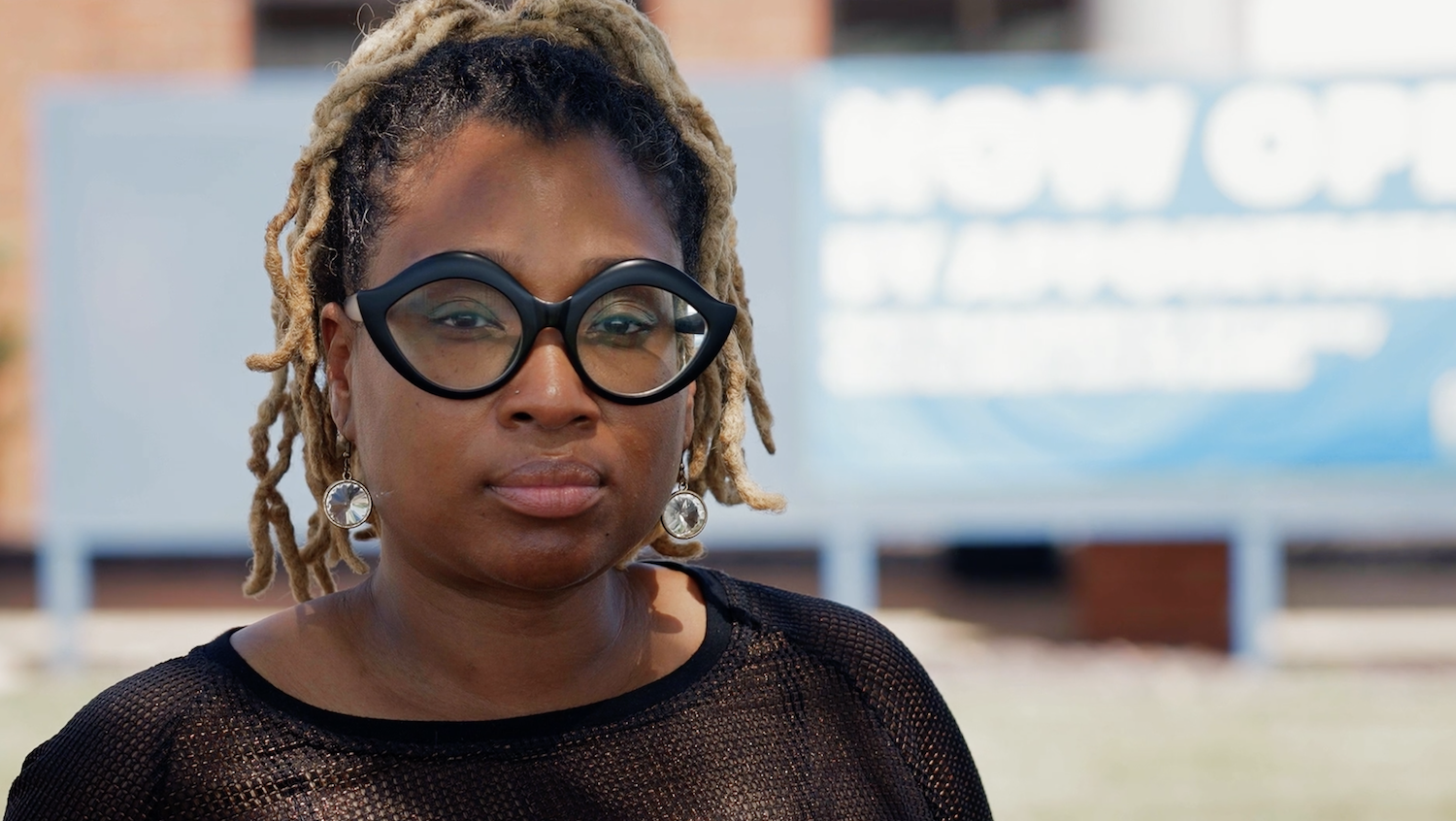
Credit: Emily Geraghty
I’ve been working in women’s health for about 21 years now. I’ve always had an issue with people being blocked from accessing the care they need, so I gravitated toward abortion rights. That’s what led me to Planned Parenthood, where my job is to help people access care.
Normally, patients have to do all the legwork themselves: locate providers, navigate insurance policies, cover costs, figure out how to get there and how to juggle everyday responsibilities like earning a living or caring for children. Our regional logistics center does the work for them. We’re a one-stop shop for patient support. We answer calls 24/7, connect directly with abortion funds across the country, and help secure logistical support for all the planes, trains, and automobiles it may take for a person to obtain an abortion.
There’s no reason people should have to go through all of these hoops to get basic health care.
But this work is not just about getting people to care. It’s about giving people a voice. Patients lay everything bare for us to understand their situation, and they’re just happy that someone cares and is willing to help. They are often literally trusting us with their lives.
That’s what keeps us going, even during these challenging times. I’m grateful to be able to help people seeking care, but it saddens me, too. There’s no reason people should have to go through all of these hoops to get basic health care. We’re doing everything we can to make sure that when patients are calling, we’re there for them. No matter what.
Michele Landeau
Board Member, Missouri Abortion Fund
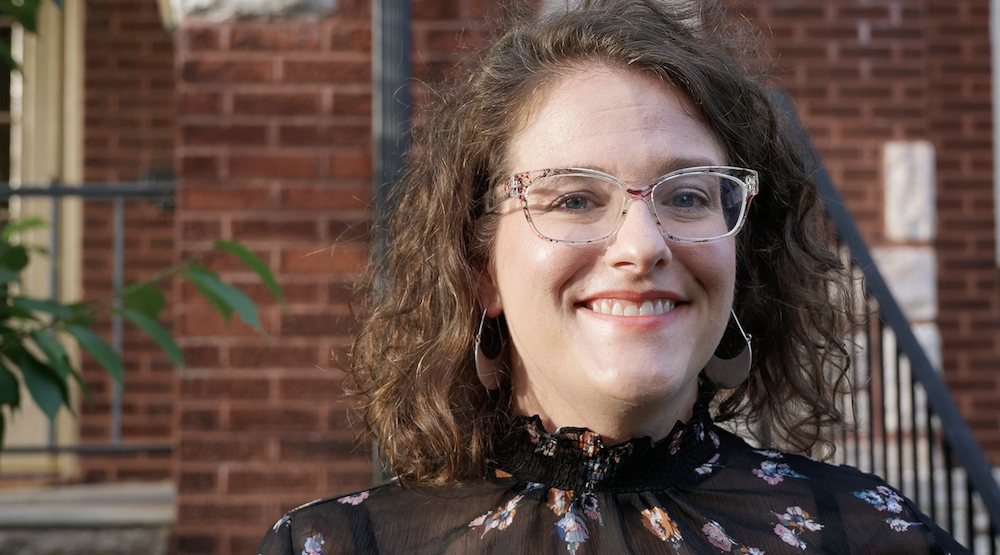
Credit: Emily Geraghty
My first job out of college was at an abortion clinic in St. Louis. At the time, I was shocked to see all the barriers people had to overcome in order to have an abortion. Now it’s even worse. Back then, there were five clinics operating in the state of Missouri. Now there are none. In those days, people would have to wait 24 hours after an initial counseling appointment to actually have the procedure. Then it became 72 hours. The state would force medical misinformation upon patients to get them to change their minds about having the abortion. Now abortion is banned altogether.
In 2016, I joined the Missouri Abortion Fund, which provides financial assistance to people who cannot afford care. Abortion is not something you should have to put off until your next paycheck. People should be able to access the care they need, when they need it.
Abortion shouldn’t be a political issue — it’s a health care issue that has been deeply politicized to the detriment of so many people across the country.
A lot of times, people don’t know how difficult it is to access abortion until they actually have to do it themselves. I hope we can use this moment to talk about all the barriers and restrictions that have been hindering access for years, and still are — and learn about the grassroots organizations that are helping get people to care on the ground.
Abortion shouldn’t be a political issue — it’s a health care issue that has been deeply politicized to the detriment of so many people across the country. It’s not always a sob story, or even a hard decision to make. Sometimes people are just pregnant and they don’t want to be, or can’t. And it’s their right to make choices about their own body.
Dr. Margaret Baum
Medical Director, Planned Parenthood of the St. Louis Region and Southwest Missouri
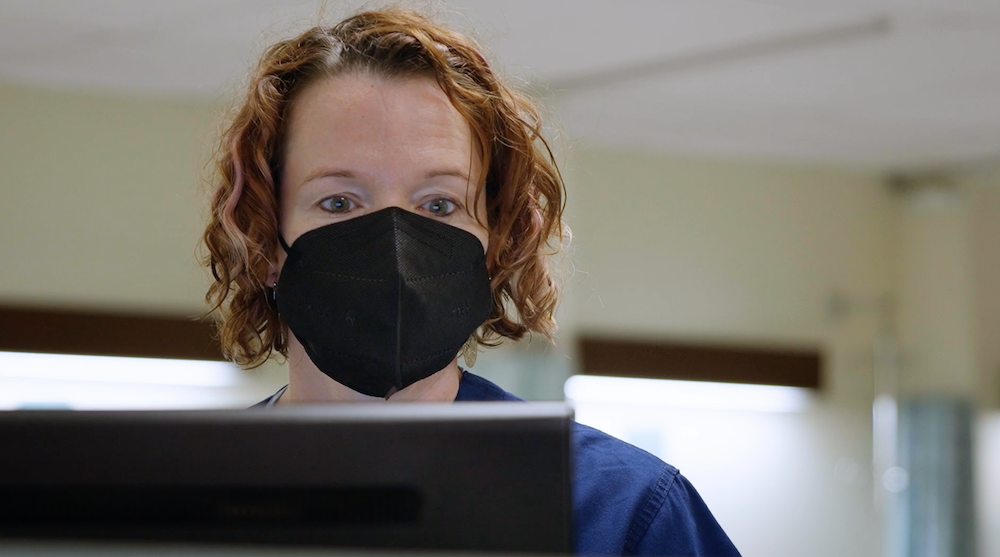
Credit: Emily Geraghty
As an OB-GYN, abortion is just one of the services I provide, along with hysterectomies, tubal ligations, vasectomies, and other surgeries. Abortion should be treated like any other medical procedure, because that’s what it is. Abortion is health care, period. The fact that politicians — folks without medical training — are making decisions about what care I can provide seems absurd to me, and impinges upon my profession. I cannot fulfill my responsibilities as a doctor without the ability to provide abortion care.
Before Missouri banned abortion, I was providing abortion care in the last remaining free-standing clinic in the entire state. It feels like a betrayal to now make patients travel to another state to get the care they need. We should be able to access abortion in the same place we live and pay taxes and vote. It’s our state, it’s our right.
The fact that politicians — folks without medical training — are making decisions about what procedures I can do seems absurd to me, and really impinges upon my profession.
There is a misconception out there that abortion is just something people do casually. That’s certainly not the case. Having done this work for many years, and having performed thousands of procedures, I can tell you that the vast majority of people that come to terminate a pregnancy have put a lot of thought into their decision. It’s simply cruel to take that decision away from them. Politicians can’t force you to donate a kidney for your child or your grandmother or your mother, or to make a blood donation to save someone else’s life. So why should they be able to force people to continue a pregnancy they don’t want?
I hope more people will be inspired to get involved with reproductive health care in any way they can. The added strain on abortion providers due to the fallout from overturning Roe necessitates more funding, more personnel, more facilities to take in a growing number of patients from states where abortion is banned. We want you to come work with us. We need to do everything we can to ensure everyone, everywhere, can access essential healthcare.
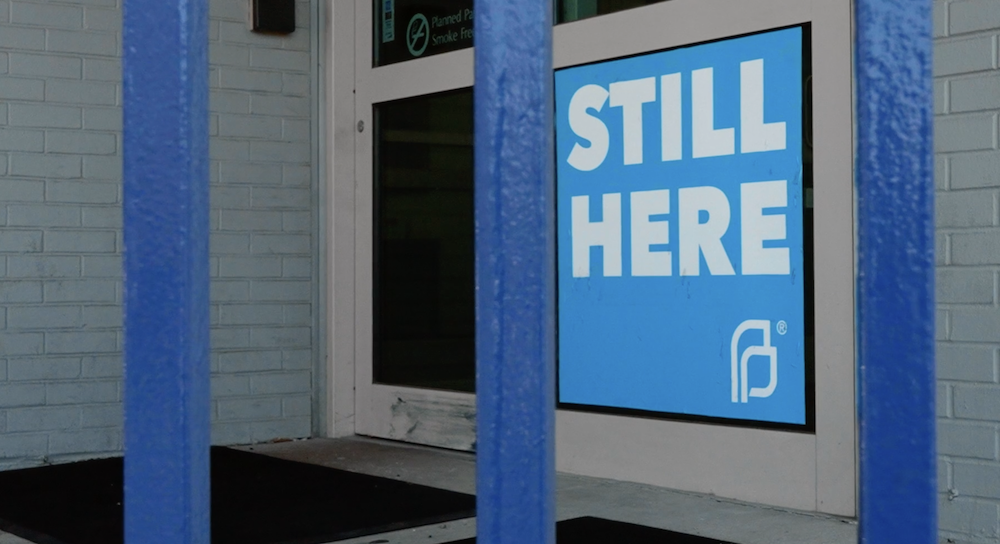
Credit: Emily Geraghty
Amy Redd-Greiner
Front Desk Supervisor and Security Coordinator, Hope Clinic for Women
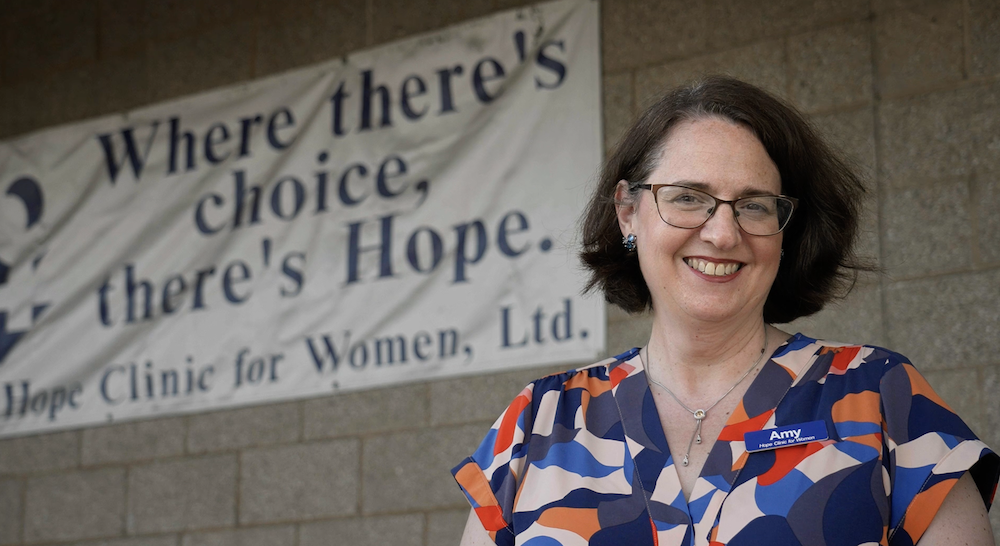
Credit: Emily Geraghty
Hope Clinic is in the St. Louis region of Southern Illinois, where we have served patients from across the country, especially the Midwest and South, for nearly 50 years. Each time a state bans abortion or further restricts access, we see a new influx of patients. When SB 8 went into effect in Texas last year, we went from seeing maybe one Texan per month to multiple patients each day. We were already serving a lot of Missourians but when their home state banned abortion, we saw a tremendous influx of folks from across the river. With Tennessee, it was the same.
That people will travel hundreds of miles to reach us demonstrates just how essential abortion access is. Our patients all have their own stories and reasons to seek abortion, but share one thing in common: They’ve made a decision about their own bodies and futures, and will go to great lengths to exercise their right to bodily autonomy.
Everyone is doing their absolute best to stay open in states that ban abortion so they continue providing other reproductive health services.
Abortion is health care — there’s no denying that. But it comes with challenges due to politics. On the ground, that often means that abortion patients have to face protesters on their way to the clinic. We do our best to keep protesters off our property, but they work very hard to push the line as much as possible, and frequently cross it. It’s our responsibility to do everything in our power to protect patients while they access care. At Hope Clinic, abortion care is patient-centered from start to finish.
Independent clinics like ours are a critical part of the health care network in the country. Everyone is doing their absolute best to stay open in states that ban abortion so they continue providing other reproductive health services. Many will be forced to close. So it’s incredibly important to support these clinics. We need money, we need energy, we need practical support to get people the care they need.
Yamelsie Rodríguez
President & CEO, Planned Parenthood of the St. Louis Region and Southwest Missouri
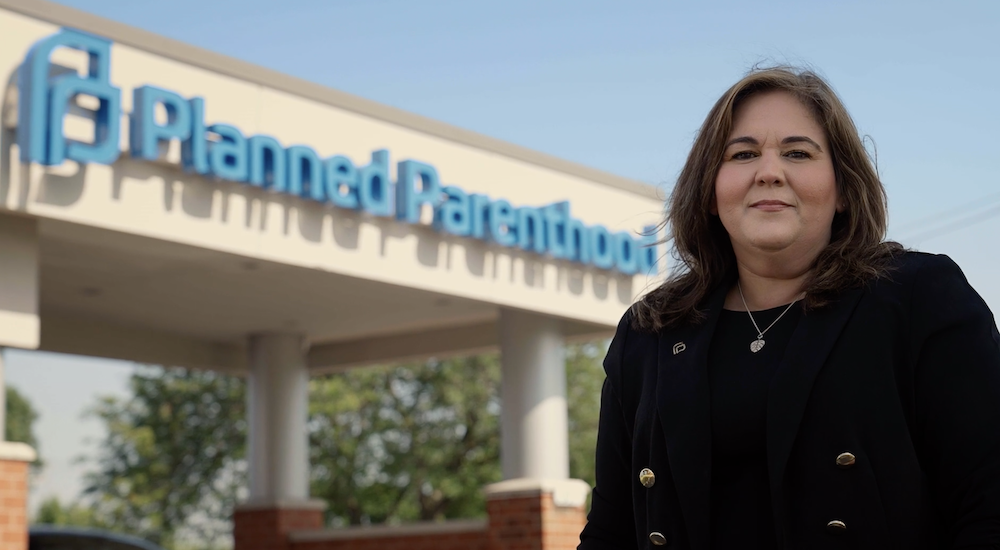
Credit: Emily Geraghty
I’ve been in the abortion rights movement for over 20 years, since I came to the U.S. from Puerto Rico after college. When I witnessed the inequities and health disparities faced by the Latino community — and learned how reproductive rights and care are critical tools for liberation — I joined Planned Parenthood to make a difference. Here, we are educators, we are health care providers, we are advocates. So for me, it’s the perfect trifecta.
When the Supreme Court overturned Roe, a reality many Missourians have known for years set in throughout the country. We already knew what it’s like to live in a post-Roe world. It’s been our reality since 2019. So we saw the writing on the wall. That’s why we strategically opened a Planned Parenthood clinic in Southern Illinois, just a few miles from the border, to make sure Missourians can access care no matter what our state does to ban abortion. Your ability to access health care should not be tied to where you live, how much money you make, or who your insurance provider is.
Your ability to access health care should not be tied to where you live, how much money you make, or who your insurance provider is.
Of course, for all our preparation, there’s no denying the immense challenges we’re facing in this moment. But I have hope that we can win back our rights and build a system to truly establish abortion equity for all. It’s going to be a long game, and it will take a lot of work, but that hope is what’s motivating us to keep fighting. This is a unique opportunity in our history to finally get it right.
One of the things we can all do as individuals is to help reduce the stigma around abortion. Abortion is health care — it’s common, it’s safe. We all know and love someone who’s had an abortion. Another way to help is to support providers. They are in dire need of financial assistance to accommodate the influx of patients from states that ban abortion. And finally, we must hold politicians accountable — and one way to do that is at the ballot box this November.
Chelsea Souder
Owner, Hope Clinic for Women
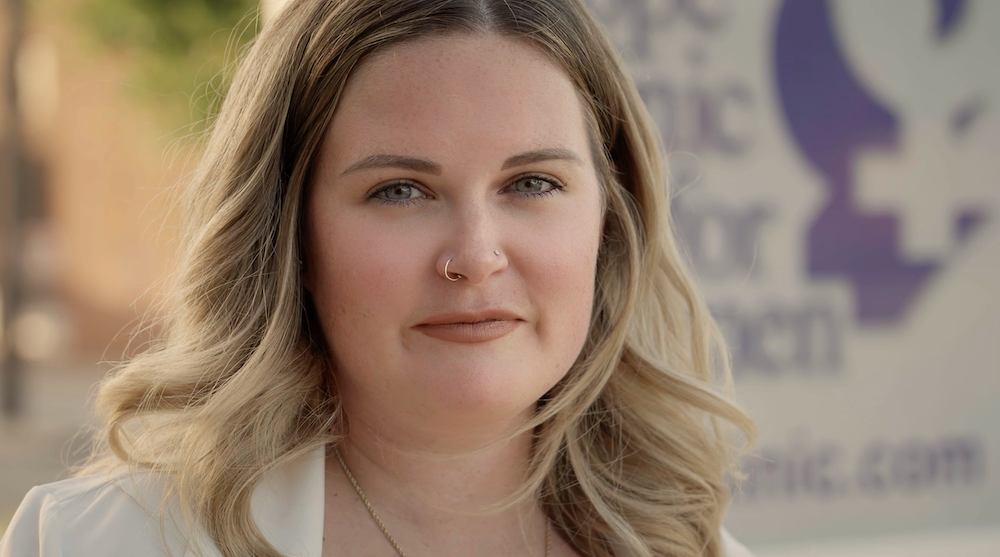
Credit: Emily Geraghty
At Hope Clinic, we’ve seen quite an increase in patients this year alone, even before Roe was overturned. When SB 8 passed last year in Texas, it caused a ripple effect across the country. Texans were going to Oklahoma, and then Oklahomans were going weeks without care. So it just pushed care further and further out of reach for everyone — not just in Texas.
Due to the landscape of abortion rights in the states bordering us, Southern Illinois is set up to support as many people as possible. We won’t turn folks away. We know it’s a lot of work just to get to a clinic, especially for patients coming from out of state. They need money to travel. They have to take time off work. They have to figure out how to care for loved ones and children while they’re getting care. It can be a really complicated system for people.
I want people to know that abortion providers are the most compassionate providers out there. And it’s not just doctors and nurses. It’s everyone — the people who answer phones, the people who check patients in, the security guards at the front, the medical assistants — it’s all of them. They deal with a lot of stuff that no one else could ever imagine, like having to walk through a gauntlet of 20 people who are screaming at you and saying the most vile, wild, outlandish, rude and disrespectful things. They are also comforting patients as they walk through the door, who are often in a vulnerable and dire state. It’s a lot of secondary trauma that people are absorbing and trying to deal with on their own.
I want people to know that abortion providers are the most compassionate providers out there.
I’m grateful that people are paying attention and are really supportive of clinics and funds and patients right now. But I don’t want people to stop fighting. This isn’t the end. Roe was just the floor. We need to pass better laws that protect people, even in Illinois, where we have a lot of work to do. We need to focus on getting better political candidates at the local level, as has been the case for decades. People need to be in tune with what’s happening in their own state, especially in states that have become safe havens of sorts, because the anti-abortion activists are going to put us in their crosshairs. And it’s just going to get even more volatile and hostile. So we need people to be supportive and ready to take action, whether it’s campaigning, lobbying, or donating to clinics, funds, and pro-abortion candidates.
The other thing that people can do is to just talk about abortion. Getting out and talking about abortion with your friends, with your family, with your providers, is going to further remove the stigma. That’s what we really need as we move forward into this next era.
Learn more about the steadfast work of these abortion providers, clinic employees, abortion funds, and volunteers by watching Help is Here: The Fight for Abortion Access below:
